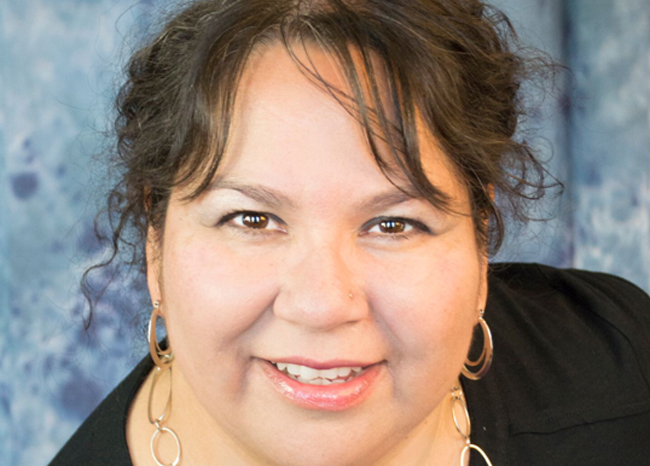Trudeau passionate about self-sufficiency for communities

By Rick Garrick
Wikwemikong’s Lynda Trudeau is excited about learning from Aboriginal women leaders at the the COADY Institute of St. Francis Xavier University’s Indigenous Women in Community Leadership (IWCL) program.
“Every single one of us women is paired with a mentor,” says Trudeau, Wikwemikong’s tenant liaison officer. “That also opened up the door to all these other women leaders in Canada that are supporting us and cheering for us. It feels really good to get that kind of support.”
Trudeau’s mentor is Georgina Island’s Cynthia Wesley-Esquimaux, vice provost Aboriginal Initiatives at Lakehead University.
“I value her feedback,” Trudeau says. “She understands the landscape of what I am trying to identify with. On a weekly basis I make contact with her and let her know what I am doing. I still have assignments, so I send them to her for review.”
Trudeau says the mentors included business women, educators, health professionals and financial people from across Canada, including Indigenous business women who have several separate businesses.
“It’s really amazing to see all these different women from across Canada,” Trudeau says. “Just being immersed with this opportunity was amazing.”
Trudeau plans to look at community infrastructure and codes and policies during her IWCL community project, beginning with Curve Lake before moving on to Pays Plat, Aamjiwnaang and Kettle and Stony Point. She also plans to visit grassroots people in a couple of Robinson Superior communities as well.
“I want to study the community infrastructure and the codes and policies because I am passionate about self sufficiency,” Trudeau says. “With my background in business administration, I would like to see how the advancement and developments are maximized as both individual First Nations and collectively as the Anishinabek Nation.”
Trudeau is grateful for the support she has received from the four communities, who will be sharing information with her and helping to guide her studies.
“How are we moving forward as Anishinabe people,” Trudeau says. “And how are we hearing the grassroots people. And if they are voicing their opinion, how are they being heard.”
Trudeau began the program in May with 20 other women from across Canada, including two others from Anishinabek Nation communities: Garden River’s Alanna Jones and Aamjiwnaang’s Lareina Rising. After completing three weeks of studies at the COADY Institute campus in Nova Scotia, the women returned back to their home territories to work on their projects.
“Some people are with their current employer and some people are on their own,” Trudeau says. “I am on my own — I am unaffiliated. After working on these projects at home, I will go back (to the campus) in August to present what I have worked on and return back to my job more aware and more confident and just more knowledgeable.”
The Indigenous Women in Community Leadership is an award-winning program that supports First Nations, Métis and Inuit women in building their capacities to be strong leaders and agents of change capable of strengthening and contributing to the development of their communities.


